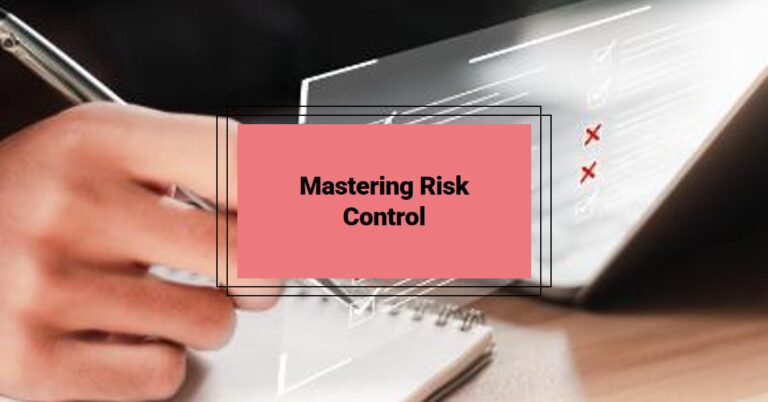Risk management is often overlooked during a start-up because start-ups are led to think it’s too expensive, unnecessary, and complex. Every seasoned entrepreneur will tell you it’s a matter of not whether you should invest in risk management but how much you should invest.
It’s easy to dismiss risk management as an unnecessary expense, especially in the early days of your new business. But actually, it’s an investment in the long-term viability of your venture, one that will help you avoid the pitfalls that can occur in many businesses and the severe losses that can result.
In this blog, we’ll explore why risk management is a worthwhile investment – and the best you’ll ever make.
So, what’s all this hullaballoo about risk management?
Put another way, risk management is about identifying, assessing, controlling, and mitigating risk factors over the project’s life cycle. It’s a safety net for catching the bad before it falls on your well-built business castle and keeps it from becoming a ruin. Risk management increases certainty, improves the chances of success, and maximises returns. Sure, it’s a fancy tool, but it’s not a luxury; it’s a sustainability and growth issue.
Risk is intrinsic to business. If your business were in any way risk-free, it would be as real as unicorns: cute to think about but impossible. The risk is low, such as deliveries from a supplier being delayed or your business being affected by a global pandemic. Ignoring or underestimating can have disastrous consequences.
Let’s look at why risk management is a prudent investment:
Prediction Powers
If you use risk management, you can foretell the future – not in some mystical, crystal-ball manner, but in a calculative, pragmatic one.
Suppose you quantify your risks by naming them and assessing their impact and likelihood. In that case, you can manage them better when they arrive. It’s not guaranteed, but you have far better odds than before.

Drives Decision-Making
Risk assessment is a fundamental part of almost every business decision, and the information gleaned can inform strategy, budgeting, and everything you do in business. You’re making better, more informed business decisions when implementing sound risk management.
Builds Creditability
Ever wondered what’s the distinguishing characteristics of a brand that can garner a lasting customer base?
It’s credibility.
If you have a good risk management plan in place, you’re telling all your stakeholders, including your customers, employees, investors, and suppliers, that you are ready to deal with whatever arises—you’re reliable. You are also creating a secure reputation for your business in their minds.
Saves Money
‘Wait a minute,’ you might be thinking, ‘how spending money saves money?’ Despite the upfront investment it entails, risk management can save you big bucks down the road. It helps you avoid preventable losses, prevents tragedies from happening, and could reduce insurance premiums.
Keeps You Agile
The more risk you can manage, the stronger you are against the inherent vulnerabilities that every business will face. A robust risk-management process allows your business to be more agile, reactive, strong, and able to plough on when it faces its own ‘black swan’ moment. Agility is the new currency as the business changes at a breakneck pace.
Final Thoughts
The initial investment cost will seem an unwelcome burden. However, recognising that risk management is, in fact, a preventive and protective cost will help you understand the value of what is spent.
Risk management is not a cost to your business as an afterthought; it’s part of your business strategy. You don’t want to be taught this lesson the hard way, do you?
‘He who fails to plan is planning to fail,’ as the famous quote states. Don’t let your business fail or miss out on the advantages of risk management. There is no silver bullet for running a risk-free business – you will be exposed to risk at some point. However, a good risk management plan will ensure you stay ahead of the pack.
Should you invest in risk management? In my view, a resounding yes. The real question is, can you afford not to?






